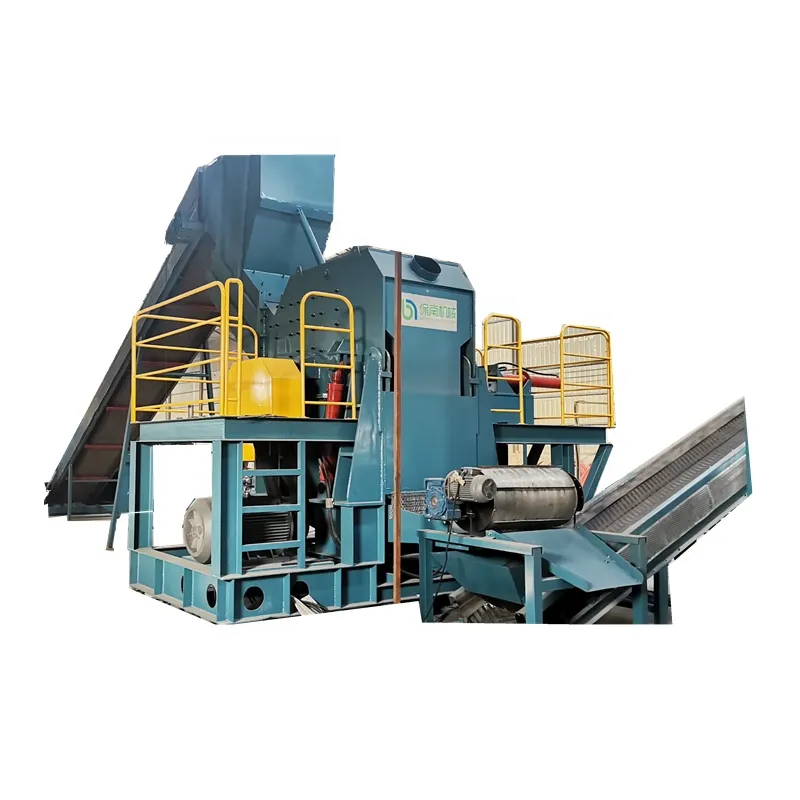

ഡിസം . 15, 2024 10:28 Back to list
Shredder Metal Recycling A Crucial Component of Sustainable Industry
In an era where sustainability and environmental responsibility have taken center stage, industries are increasingly seeking effective methods to manage waste. One such method gaining traction is shredder metal recycling, a process essential for reducing waste, conserving resources, and minimizing the environmental impact of metal products. This article delves into the importance of shredder metal recycling, its processes, and the benefits it brings to the economy and the environment.
Understanding Shredder Metal Recycling
The process of shredder metal recycling involves the collection and processing of scrap metal, usually generated from industries such as construction, automotive, and manufacturing. This scrap metal is fed into shredders—heavy machinery designed to break down metal materials into smaller, manageable pieces. The shredded metal is then sorted and processed for recycling, allowing it to be repurposed for new products.
Shredder facilities are equipped with advanced technology that enables them to efficiently separate various types of metals, such as steel, aluminum, and copper, from other materials. This sorting process is critical because different metals have unique properties and recycling methodologies. Once separated, the metals can be melted down and reformed into new products, closing the recycling loop.
The Economic Benefits of Metal Recycling
Shredder metal recycling presents significant economic advantages. Firstly, it helps conserve energy. The recycling of metals consumes significantly less energy compared to the extraction and processing of virgin materials. For instance, recycling aluminum saves about 95% of the energy needed to produce it from raw bauxite ore. This energy efficiency translates into reduced operational costs for manufacturers and a lower demand for fossil fuels, contributing to energy savings on a larger scale.
Moreover, recycling creates jobs within the community. The processes involved in collecting, shredding, and processing scrap metals generate employment opportunities across various sectors, from logistics to engineering. As the demand for recycled materials increases, so does the potential for job creation, fostering economic growth and community development.

Environmental Impact of Metal Recycling
Beyond economic benefits, shredder metal recycling plays a crucial role in environmental conservation. It significantly reduces landfill waste. In many countries, landfill space is becoming increasingly scarce, and metal items can take decades, if not centuries, to decompose. By recycling metals, we divert substantial quantities of waste from landfills, prolonging their lifespan and reducing the need for new landfill sites.
Furthermore, metal recycling mitigates harmful environmental impacts associated with mining and metal production. Mining activities can lead to soil degradation, deforestation, and water pollution. By choosing to recycle metal, we reduce the need for raw material extraction, thereby decreasing the environmental footprint of metal production. The recycling process generates fewer greenhouse gas emissions compared to manufacturing with virgin materials, contributing to global efforts of combating climate change.
Challenges in Shredder Metal Recycling
Despite its benefits, shredder metal recycling faces several challenges. One significant issue is contamination. Non-metal materials, such as plastics or electronic waste, can complicate the recycling process and lower the quality of the final metal products. As a result, ensuring the purity of input materials is vital for the efficiency of shredders and the overall recycling process.
Additionally, the fluctuating prices of metals can impact the economic feasibility of recycling operations. When metal prices fall, recycling may become less profitable, leading some facilities to cut back on operations or shut down altogether. To address these challenges, ongoing investment in better technologies and public awareness campaigns is essential to promote responsible recycling practices.
Conclusion
In conclusion, shredder metal recycling is a vital cog in the machinery of sustainable industry, balancing economic, environmental, and social benefits. As society continues to grapple with the challenges of waste management and resource conservation, the role of metal recycling is becoming increasingly significant. By embracing and advancing shredder metal recycling initiatives, we can foster a more sustainable future while reaping the benefits of a circular economy. Every piece of metal recycled is a step towards a more responsible and sustainable use of our planet's resources, underscoring the critical need for continued investment and innovation in this field.
Latest news
Troubleshooting Common Eddy Separator Problems
NewsJul.04,2025
The Role of Metal Recycling Plants in Circular Economy
NewsJul.04,2025
The Impact of Recycling Line Pickers on Waste Management Costs
NewsJul.04,2025
Safety Features Every Metal Shredder Should Have
NewsJul.04,2025
How Industrial Shredders Improve Waste Management Systems
NewsJul.04,2025
How Cable Granulators Contribute to Sustainable Recycling
NewsJul.04,2025